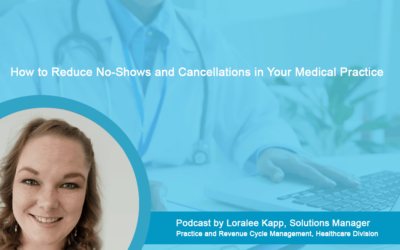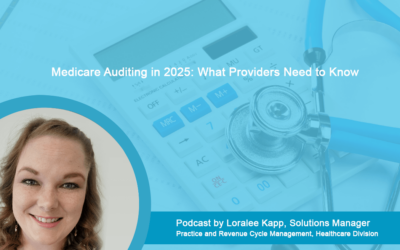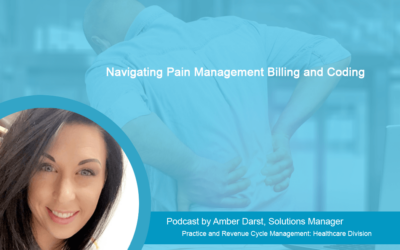Outsource Strategies International (OSI) is an experienced dental billing outsourcing company in U.S., providing comprehensive dental eligibility verifications and other services to help practices run efficiently. Our services cover everything from patient scheduling and insurance verification and authorization to billing, payment collections, and accounts receivable management.
In today’s podcast, Amber Darst, our Dental Insurance Coordinator, discusses guidelines on dental sleep medicine billing for oral appliance therapy.
Read Transcript
Hey, this is Amber Darst, Dental Insurance Coordinator from Managed Outsource Solutions. Today, I’ll be discussing guidelines for dental sleep medicine billing for oral appliance therapy.
Obstructive sleep apnea or OSA is a condition now commonly addressed by dentists. This breathing disorder can be defined as either a decrease or complete cessation of airflow during sleep. According to SleepFoundation.org, more than 18 million American adults have sleep apnea. Apart from the continuous positive airway pressure device also referred to as CPAP, other methods of treating sleep apnea include dental appliances which reposition the lower jaw and tongue, and upper airway surgery to remove tissue in the airway.
Dental sleep medicine specialty focuses on the management of sleep-related breathing disorders, including snoring and obstructive sleep apnea through the use of oral appliance therapy. Dental practices provide oral appliance therapy (OAT) in partnership with physicians. Sleep-related breathing disorders, also known as SRBD, are characterized by disruptions in normal breathing patterns. SRBDs are potentially serious medical conditions caused by anatomical airway collapses and altered respiratory control mechanisms. Common SRBDs include snoring, upper airway resistance syndrome (UARS) and obstructive sleep apnea (OSA).
In 2017, ADA proposed a new policy that dentists have a key role in treating sleep-related breathing disorders (SRBD). In this ADA policy, key roles of a dentist include assessing the patient’s risk for SRBD as a part of comprehensive medical and dental history and referring affected patients to appropriate physicians, and evaluating the appropriateness of oral appliance therapy (OAT) as prescribed by a physician. They will then provide the therapy for mild and moderate sleep apnea when a patient does not tolerate a CPAP device, recognize and manage oral appliance therapy side effects, continually update dental sleep medicine knowledge and training, and communicate the patients’ treatment progress with the referring physician and other healthcare providers.
02: 35 What Does Oral Appliance Therapy (OAT) Involve?
Oral appliance therapy (OAT) involves fitting a custom-made oral appliance worn at night to reposition the lower jaw and tongue forward to improve upper airway patency during sleep. Oral appliance therapy requires that the physician and a dentist function as an integrated team to optimize therapeutic response and patient compliance. As sleep-related breathing disorders are medical conditions, for obstructive sleep apnea, the diagnosis will be made by the physician and if prescribed, oral appliance therapy is provided by dentists that are trained in dental sleep medicine.
Also, as oral sleep apnea is a medical condition, the dental office must submit claims for oral appliance therapy to medical insurers and not dental. Since Medicare approved oral appliances in 2011, most medical plans generally offer coverage for FDA-approved appliances.
03:42 Importance of Prior Authorization and Pre-determination
Prior authorization and/or pre-determination is crucial for dental practices to confirm the patient’s insurance coverage before providing the service. Documentation to be submitted along with the pre-determination claim or the prescription for the oral appliance from the referring physician, a letter of medical necessity from the physician, diagnosis code(s), CPAP intolerance affidavit (if warranted), treatment code(s), and documentation of the patient’s visits and references.
To substantiate the medical necessity for the appliance ordered, dental professionals must obtain the copies of their office notes, pertinent test reports, and other healthcare records from physicians.
To fulfill Medicare requirements, the information in the medical record should include evidence that the treating physician conducted a face-to-face clinical evaluation prior to the sleep study to assess the patient for obstructive sleep apnea. Clinical evaluation should be documented in a detailed narrative note in the patient’s chart in the format the physician uses for other entries.
Once the oral appliance is delivered to the patient, the dental professional has to maintain proof of delivery documentation, which includes the beneficiary’s name, signature and the date of signature, delivery address, date of delivery, detailed description of the item and the quantity delivered. Claims for payment of oral appliances that do not have the appropriate proof of delivery documentation will be denied. Also, a copy of the sleep study should be sent to the medical insurer along with office notes and the letter of medical necessity or written order from a physician. Always ensure that the medical histories document high blood pressure, daytime sleepiness, cognitive or mood disorders, heart disease and other symptoms of sleep apnea.
When it comes to denial management in case of a claim denial for oral appliance therapy, always emphasize that the treatment is for a medically necessary condition and not a dental condition.
And that’s it.
I hope this helps. But always remember that documentation and a thorough knowledge of payer regulations and guidelines is critical to ensure accurate reimbursement for the procedures performed.
Thanks for listening in!



